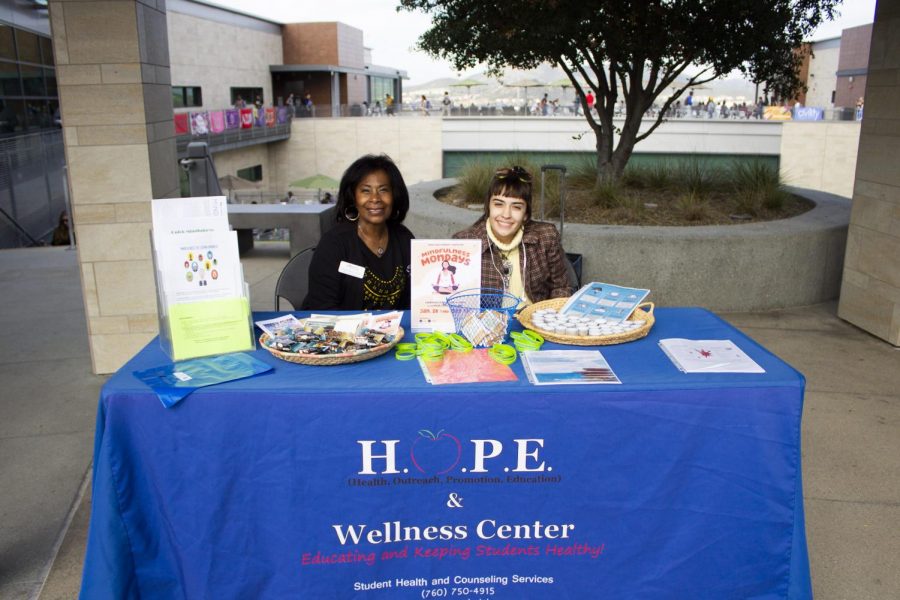Students learn about the importance of being mindful while in school
Mental health educator Cheryl Berry, M.Ed. and cougar chronicle news reporter Christina Suarez pose for a photo on Jan 29.
February 5, 2019
Outside the USU, tables were set for AMP Up Mindfulness on Jan. 29 from 11 a.m. to 1 p.m., each organized with a different perspective on promoting mindfulness in activities students do.
AMP Up Mindfulness is a branch of Student Health and Counseling Services designed to bring awareness to mental health and mindfulness.
AMP Up Mindfulness is a part of Active Minds and both programs started three years ago and it’s one of 400 chapters spread across the U.S. Active Minds is constructed of peer educators who become activists and advocates for mental health aligned with the state initiative of each mind matters.
The event also focused on the idea of mental health wellness which is being able to keep yourself from illness.
Mental health educator Cheryl Berry worked in public health for many years at the state and federal level.
Mindfulness is to be present in the moment and in a non-judgemental way.
CSUSM is a selected campus in which the Board of Trustees and chancellor’s President Karen Haynes took interest in mindfulness and wanted a model for mental health on campus.
The tables’ topics differed but were focused on interconnected goal: how to reduce anxiety and stress, how to manage stress and what mindfulness is.
One table focused on mindful showering, that is being relaxed and cognitive of the things going on around you, can you feel the water on your skin? Is it warm? Cold? How do you feel?
The second table was for mindful eating and what it means to eat while being mindful of yourself and your hunger instead of mindlessly eating.
The third table had four different activities related to the mindfulness of the senses. One activity was for touch and the idea was to pick up a handful of sand and feel it in your hand and how it feels when you release it.
The second activity was for taste. Student volunteers offered a Lifesaver and asked students to acknowledge the flavors, shape and texture they felt. The third activity was for sight. There was a mirror for students to look in and see what feature they liked about their face. The last activity was for smell and the table had essential oils for students to breathe in and destress.
Another table was concerned with the mindfulness of students commuting to school and were giving out car air fresheners. Kathy Tran, a fourth year human development major who’s been commuting all four years, said the most stressful thing about commuting was “having to rush.”
The university has an online platform for students, faculty and staff called Kognito, consisting of simulations, gatekeeper training and tips on how to have difficult conversations around mental health and those at risk.
The goal of all these programs is to have “students connected at the local, state and international level,” said Berry.
For more information about mental health resources on campus, visit the Student Health and Counseling Services website at www.csusm.edu/shcs.







